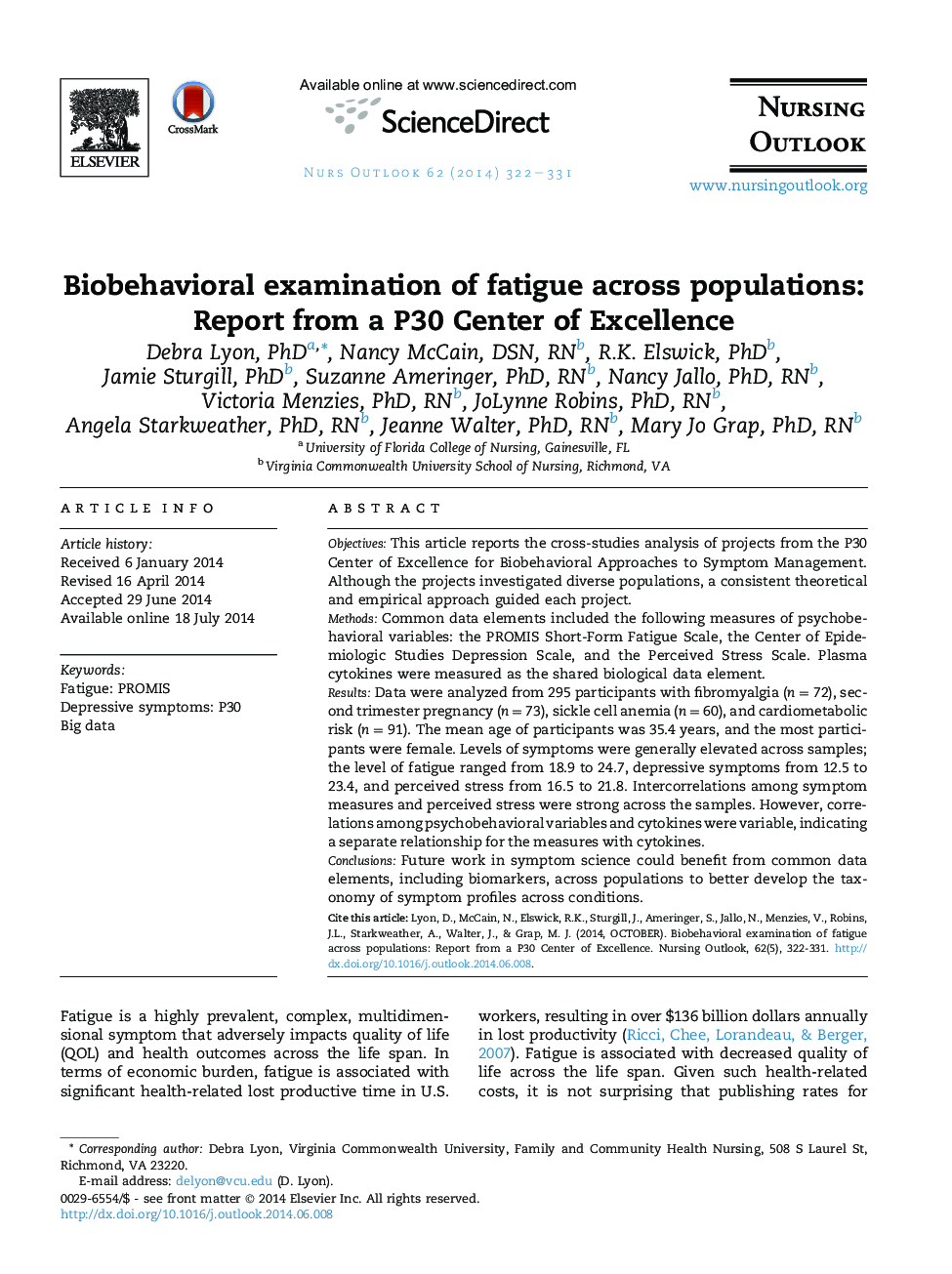| Article ID | Journal | Published Year | Pages | File Type |
|---|---|---|---|---|
| 2673264 | Nursing Outlook | 2014 | 10 Pages |
ObjectivesThis article reports the cross-studies analysis of projects from the P30 Center of Excellence for Biobehavioral Approaches to Symptom Management. Although the projects investigated diverse populations, a consistent theoretical and empirical approach guided each project.MethodsCommon data elements included the following measures of psychobehavioral variables: the PROMIS Short-Form Fatigue Scale, the Center of Epidemiologic Studies Depression Scale, and the Perceived Stress Scale. Plasma cytokines were measured as the shared biological data element.ResultsData were analyzed from 295 participants with fibromyalgia (n = 72), second trimester pregnancy (n = 73), sickle cell anemia (n = 60), and cardiometabolic risk (n = 91). The mean age of participants was 35.4 years, and the most participants were female. Levels of symptoms were generally elevated across samples; the level of fatigue ranged from 18.9 to 24.7, depressive symptoms from 12.5 to 23.4, and perceived stress from 16.5 to 21.8. Intercorrelations among symptom measures and perceived stress were strong across the samples. However, correlations among psychobehavioral variables and cytokines were variable, indicating a separate relationship for the measures with cytokines.ConclusionsFuture work in symptom science could benefit from common data elements, including biomarkers, across populations to better develop the taxonomy of symptom profiles across conditions.
